Camilo Vives
-
Birthday
-
Zodiac Sign
-
Genres
0
Total Films
Also known as (male)
Havana, Cuba
Place of Birth
-
Birthday
-
Zodiac Sign
-
Genres
0
Total Films
-
Also Known As (male)
Havana, Cuba
Place of Birth
-
Birthday
-
Zodiac Sign
-
Genres
0
Total Films
Also known as (male)
Havana, Cuba
Place of Birth
-
Birthday
-
Zodiac Sign
-
Genres
0
Total Films
-
Also Known As (male)
Havana, Cuba
Place of Birth
actor
0 Works
producer
26 Works
director
30 Works
writer
0 Works
other
4 Works
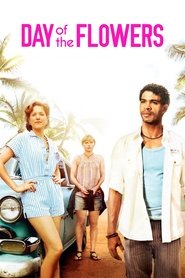
Day of the Flowers
Two young, strong-willed Scottish sisters, one a left-wing activist, the other a most-popular-girl-in-school type, take their late father's ashes to Cuba, the site of many family legends of his services to the Revolution. Arriving in Havana, the two women promptly lose the ashes and go through a series of misadventrues - both romantic and dangerous - to try to retrieve them. A colourful and wryly humourous tale of cross-cultural misunderstandings and lost illusions.Year:
2013

Desde el lado del corazón
From the side of the heart, is a documentary that tries to discover the reasons, motivations and individual situations that led numerous people to participate in the Peruvian left in the 1970s, years of the military governments of Juan Velasco Alvarado and Francisco Morales Bermúdez. It is a documentary of testimony and reflection that navigates memory to try to recognize concerns and rediscover experiences ideologically decanted in the light of the years. It does not intend to collect political theses or justify past or current positions, but to testify enthusiasms, frustrations, ideals and loyalties, if the use of this last word is possible.Year:
2013

Bolívar: el hombre de las dificultades
The Second Republic has fallen miserably. Simon Bolivar arrives to Jamaica without money or friends, seeking help from other nations to free Venezuela.Year:
2013

Green Green
The first gay-themed film produced in Cuba by the Institute of Cinema since Strawberry & Chocolate in 1993. The theme, however, is the same as in Guttiérerez and Tabìo's film: homophobia, machismo and fear. The fatal attraction between Alfredo, a doctor in the merchant navy, and handsome Carlos starts in a rundown Havana bar and ends at the sailor's house. But Alfredo's flirting and seducing of Carlos immediately turns into something complicated, ambiguous, dangerous. In a claustrophobic, tense atmosphere, their bodies are powerfully attracted, and the words, though violent, intensify the level of sensuality. Does each man kill the thing he loves? Evoking dreamlike atmospheres and characters, 80-year-old veteran director Enrique Pineda Barnet openly references Fassbinder's Querelle and Jean Genet. Quite controversial in its approach, the films demonstrates the milder attitude of Raul Castro's regime towards Cuba's LGBT Community.Year:
2012
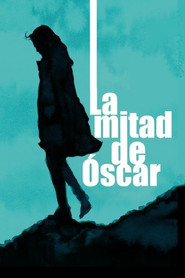
Half of Oscar
A reunion with his family provides a clue into the cause of one man's lonely life in this drama from filmmaker Manuel Martin Cuenca. Oscar lives in a barren section of Almeria, Spain, where he works as a guard at a salt mine. Oscar's days are governed by a monotonous routine: he goes to work, has lunch with fellow guard Miguel, finishes work, visits his dying grandfather at a hospice, and then goes home. While he sometimes spends his evenings with a woman, it's clear their relationship is not a close one. One day, Oscar gets word that grandfather has been transferred to a hospital, and his sister Maria, who now lives in Paris, comes to Almeria to pay the old man a visit. Maria, who is expecting a baby, is accompanied by her boyfriend Jean , who tries to keep a distance between the two siblings. It becomes clear that Oscar and Maria share an ugly secret that she wants to keep hidden at all costs, leading to an grim tension that grows between her and her brother.Year:
2010

Habana Eva
In a Havana, shaken by Fidel's retirement, a young seamstress, trapped in a sweatshop job, dreams of designing beautiful dresses. Frustrated by her lazy, though adorable Cuban boyfriend, she meets a sophisticated ex-patriot Cuban-Venezuelan who dazzles her with a glamorous future. After many deceptions and surprises, Eva has to choose between the two men she loves. Hers is an unexpected decision... a humorous metaphor of Cuba's options for the futureYear:
2010

Horn of Plenty
An unclaimed fortune, grown for centuries in a British bank account, becomes a potential windfall for Bernadito Castiñeiras and the residents of the tiny village of Yaragüey, Cuba. To receive his massive inheritance check, Bernadito must prove his lineage to the Castiñeiras nuns who first populated the region. In an isolated and impoverished town where many residents share the same surname, a feud breaks out between the "Castiñeiras" and "Castiñeyras" families.Year:
2008
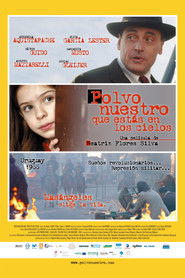
Polvo nuestro que estas en los cielos
Aurelio Saravia is a powerful politician who holds office in Uruguay in the mid-1960's. When Aurelio's mistress kills herself, he adopts their illegitimate daughter Masangeles despite the stern objections of his wife Aurora. Masangeles finds herself growing up in a home ruled by a corrupt and self-centered tyrant and his manic colleagues while Uruguay teeters on the brink of civil war as bands of revolutionaries battle government militias. When she turns fourteen, Masangeles discovers a secret passageway in their home that leads to sanctuary in a nearby church which also serves as a storehouse for guns and ill-gotten cash. Teenage Masangeles falls in love with Santiago, her stepbrother who has joined the rebels fighting against the state, and she persuades him to take her virginity.Year:
2008

Fallen Gods
In the manner of a well run Greek tragedy, leaving aside one of its components, dragging in its passing narrative certainty by the viewer that violent death is the hallmark of so much misfortune purifier, Los Dioses Rotos crowns the very successful arrival of Ernesto Daranas to the feature domains and with it, the team that accompanied him, including the actors.Year:
2008
El Benny
Based on the life of Benny Moré, the film concentrates on a period in the early 1950s when Moré leaves the orchestra of Duany and starts his own 'Banda Gigante'. In flashback we learn of his success in Mexico. Moré is caught in the events connected to Batista's coup in Cuba. Also, he tours Venezuela, where he suffers the machinations of a vengeful businessman. After collapsing and being hospitalised, Moré swears off alcohol. Some years later, he encounters his old band-mate Monchy, fallen on hard times.Year:
2006
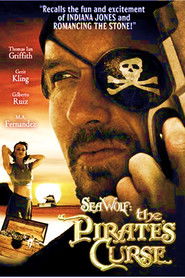
Sea Wolf: The Pirate's Curse
Sea of Danger, Sea of DesireYear:
2005

The Galíndez File
On March 12, 1956, Basque Nationalist Jesús de Galíndez Suarez disappears from his apartment in New York, never heard from again. He had been working with the FBI and was about to publish a book critical of Dominican strongman, Trujillo. In 1988, a graduate student, Muriel Colber, wants to make Galíndez the subject of her dissertation. She's in Spain doing research; finding little, she goes to Santo Domingo. At every turn, the CIA, in the person of agent Robards, tries to thwart her; and, at each turn, as she considers abandoning the project, someone offers new information, often contradictory. She wants the truth behind the Galíndez mystery; will she find it?Year:
2003

Nada+
Carla, a young postal worker in Havana, spends her days postmarking thousands of letters and dreaming of the day when she can be reunited with her parents, who moved to Miami when she was fifteen. To fulfill her longing for intimacy, she opens random letters and rewrites them into lyrical prose, believing she is helping her fellow Cubans understand one another better. Beautifully filmed in black and white accented by brilliant colours, Nada+ has a stunning visual composition. With its delightful mix of visual humour, theatrical characters, satire and a lighthearted love story, it has a distinctly Cuban flair.Year:
2001

In This Tricky Life
Montevideo, Uruguay. In this comedic drama, Elisa, 27, dreams of opening her own hairdressing salon in one of the rich districts of the Uruguayan capital. A bit of a rebel, one day Elisa moves out of her mother's house with her two children and breaks up with Garcia, her boss and lover who has infuriated her by not wanting to get married. So, in the space of twenty-four hours, Elisa finds herself without a roof over her head, without a man, without a job and without money. Her best friend Loulou finds her a job - in the brothel run by Dona Jacqueline. And without really being aware of it, Elisa slides into prostitution, which leads her to Barcelona. She falls in love, she is exploited, she gets involved in transvestite gang wars, and meanwhile just dreams of earning enough money for her little beauty salon back home.Year:
2001

The Waiting List
At a rundown bus station in rural Cuba, the line of passengers waiting just keeps getting longer. The problem is that every bus that passes by is already full. Their only hope is to wait for the station's bus to be fixed. As the disparate group settles in, relationships start forming between the passengers: Emilio, a young engineer, becomes smitten with a beautiful young woman who is en route to meet her Spanish fiancé, a blind man gets support from the others to go to the head of the line. Frustration and disorder reign when the one bus brakes down and no one can leave. Resigned to working together, the group magically transforms the station into a beautiful place where no one wants to leave.Year:
2000
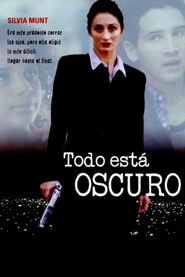
Todo está oscuro
Marta must travel to Colombia to take charge of the corpse of his brother Juan, who has been murdered. Once there, she gets involved in a mysterious plot.Year:
1997

Maité
Year:
1994

Strawberry and Chocolate
Set in 1979, following a young Communist man's relationship with a gay Catholic writer, exploring tolerance, inclusion, homophobia and challenging its Cuban audience with great humour. Based on the short story by Cuban writer Senel Paz.Year:
1993

Confessing to Laura
The action is situated in Colombia on April 9, 1948, date in which took place the famous "Bogotazo". It is a story of love frustrated by political circumstances. Laura, a spinster schoolteacher, lives to Josefina and Santiago, public employee. The three characters will be besieged by 24 hours, targeted by snipers, will be forced to show such which are or they would have liked to be.Year:
1991
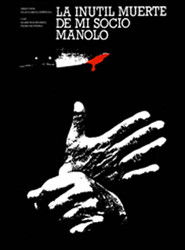
The Useless Death of My Pal, Manolo
Cheo visits his friend, Manolo, who he hasn't seen for many years. They drink to celebrate their reunion and fondly recall the times they spent together in years past. As they reminisce, the two friends confront the revolution, evaluate their lives, and bare their souls.Year:
1989
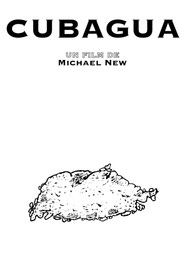
Cubagua
Based on the novel by Venezuelan writer Enrique Bernardo Núñez, the film tells the story of engineer Leiziaga discovering his historical doubles in the context of the colonization of the island of Cubagua in Venezuela. In this way, two stories are intertwined: one that takes place in the 16th century and another in the 20th century. The first story focuses on the life of the Spanish settlers who arrived in Cubagua and the exploitation of the indigenous peoples for pearl extraction; the second story, set in the 1920s, tells of Leiziaga's archaeological expedition, financed by a multinational oil company, in which he visits the island to study the ruins of the Spanish settlement, which leads him to reflect on the passage of time and the destruction caused by human exploitation, and through a game of mirrors, to realize the relationships between the past, present and future.Year:
1987

One Way or Another
In Miraflores, Cuba, the growing romance between Mario, a factory worker, and Yolanda, a schoolteacher, throws into relief the differences in their perspectives and values in Revolutionary Cuba.Year:
1977
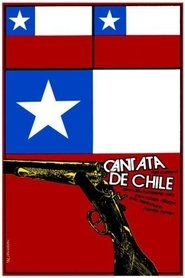
Cantata de Chile
The story of the Santa María School massacre of miners in 1907.Year:
1976

The Last Supper
A pious plantation owner attempts to teach Christianity to 12 of his slaves by inviting them to participate in a reenactment of the Last Supper.Year:
1976

A Cuban Fight Against Demons
In 1672 Cuban revolutionaries launch an uprising against the Spanish who are occupying the country. Preserved by the Academy Film Archive in 2017.Year:
1972

Lucía
In his award-winning film Lucía, Humberto Solás interpreted the theme of Cuba’s hundred years' struggle in an entirely novel way to create an epic in three separate episodes, each centred around a woman called Lucía and each unfolding in a different period of Cuban history, corresponding to the three stages of colonialism (1895), neocolonialism (1930) and socialist revolution (1968). The three episodes also present us with "Lucías" of different social classes. Solás described his film in this way: "The woman's role always lays bare the contradictions of a period and makes them explicit: Lucía is not a film about women, it's a film about society."Year:
1968